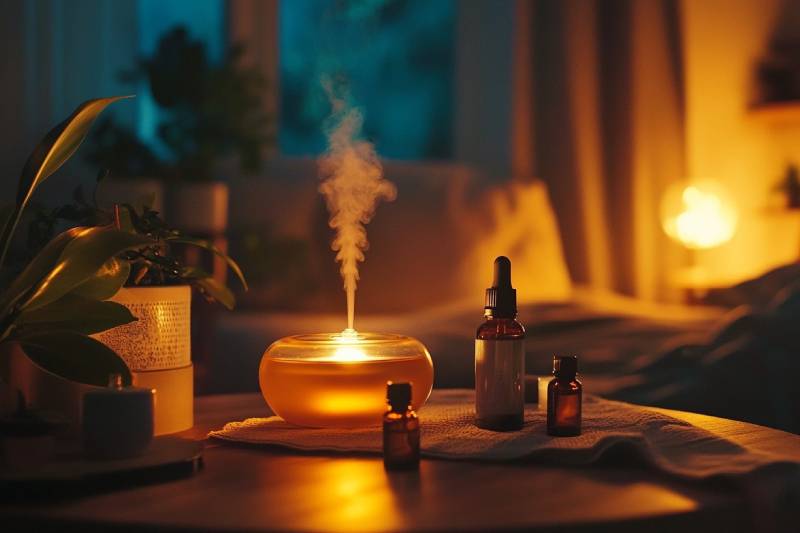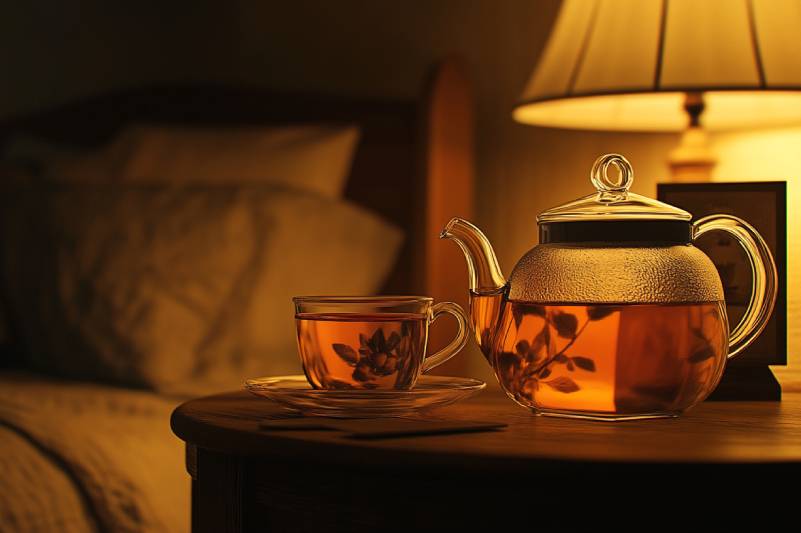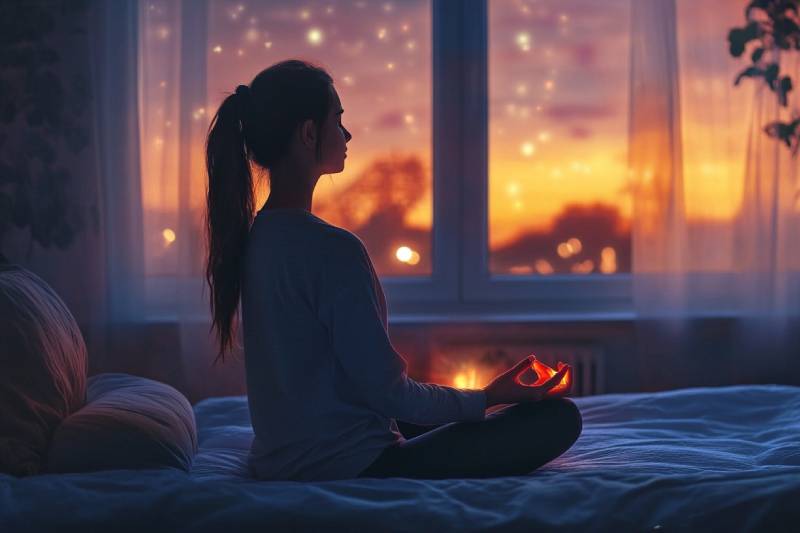We’ve all experienced the frustration of struggling to get a good night’s sleep. Whether it’s falling asleep or staying asleep, occasional sleep troubles can affect anyone. Unfortunately, a lack of sleep often impacts our daily activities.
Before turning to prescription medication, why not consider natural remedies to promote relaxation? With fewer potential side effects, these gentle options can help you achieve a more restful night. Let’s take a closer look at some of the most popular natural remedies for insomnia:
Aromatherapy: The Soothing Effect of Scents

Aromatherapy is a relaxation technique that uses essential oils to reduce anxiety and promote better sleep. Certain scents have been long recognized for their ability to calm the mind and body effectively:
- Lavender
- Chamomile
- Bergamot
- Sandalwood
- Ylang-Ylang
- Valerian Root
✦Application
- Diffusers: A diffuser is a great way to fill your room with soothing scents throughout the night. Add a few drops of your favorite essential oil to the diffuser and enjoy a continuous aroma as you sleep.
- On Your Pillow: Apply a few drops of essential oil directly onto your pillow to create a calming effect that promotes relaxation and restful sleep.
- Bath Soaks: To double the relaxation, combine essential oils with bath salts and add them to warm bath water before bedtime. This soothing ritual can help ease tension and prepare your body for sleep.
Herbal Teas: Nature’s Gift for Sleep Aid

Herbal teas are not only delicious but can also help you relax and drift off to sleep thanks to their natural sedative properties. Some of the most popular herbal teas for promoting relaxation include:
- Chamomile Tea: As a star player in both aromatherapy and herbal teas, chamomile is widely known for its ability to combat insomnia and promote restful sleep.
- Peppermint Tea: While not directly sedative, peppermint tea can soothe digestive discomfort that might interfere with your ability to fall asleep.
- Lemon Balm Tea: Brewed from dried lemon balm leaves, this tea is renowned for its stress-relieving properties.
- Valerian Root Tea: With mild sedative effects, valerian root tea is often used to ease anxiety and improve sleep quality.
- Passionflower Tea: This tea has been shown to boost GABA levels in the brain, helping to calm the mind and encourage better sleep.
These herbal teas truly are nature’s gift for a peaceful night. Why not end your day with a soothing cup of tea before bedtime?
Meditation: Cultivating Mindfulness for Better Sleep

Often, difficulty falling asleep stems from a busy mind filled with racing thoughts. Meditation can be an effective solution to calm the mind and combat insomnia. Here are some simple meditation practices to try:
- Guided Meditation: Listen to a soothing voice or calming music to help relax the mind and body.
- Deep Breathing: Focus on deep inhalations and exhalations, paying attention to the rise and fall of your chest and the rhythm of your breath.
- Progressive Muscle Relaxation: Increase awareness by tensing and then relaxing each muscle group in your body. This practice activates your body’s relaxation response.
- Body Scan Meditation: Cultivate mindfulness by paying attention to sensations, tension, or pain in each part of your body, helping you connect with and listen to your body.
- Transcendental Meditation: Repeat a mantra or sound silently to promote relaxation and reduce stress.
Even just a few minutes of meditation each day can significantly improve your sleep quality. By slowing your heart rate and lowering blood pressure, meditation helps prepare your body for a restful night’s sleep.
There are even more holistic methods to help guide us into sweet dreams, such as taking a warm bath or practicing self-massage. The key is to find the approach that works best for you. Incorporate these natural remedies into your bedtime routine to ensure you won’t have to count sheep again!

